
Why buy a whole album when you can just download the one or two songs you really want from iTunes?
Why subscribe to a whole TV channel when you can just download the specific shows or episodes you want online?
Our ability to unbundle purchases in the commercial sector is beginning to rock conventional notions of how degree and diploma programs are delivered – in predetermined, generally inflexible packages of courses, credits, semesters and years.
With the proliferation of MOOCs and other non-traditional sources of education and training, some students are looking beyond the pre-set bundle, using smaller and more flexible programs to “build their own” educational experience.
The advantage? A customized portfolio of credits and credentials that are typically much faster to earn, more affordable, and more easily transferrable than the post-secondary courses of old.
[Tweet “With unbundling, students can customize what they learn, from whom, and when. #Hemktg”]
While there is definitely still a place for the four-year university degree and career training program, colleges and universities are nonetheless challenged to compete with the emerging model of “à la carte” education.
Read on to understand more about how alternative credentialing works, and for ideas about how your school can incorporate the new micro approach to skill-building into existing frameworks.
Bootcamps Compete with Career Colleges with Micro-Courses
Career colleges often market their programs as more practical alternatives to the traditional three-to-four year university degree. Curricula is condensed, career-oriented, and focussed on combining relevant theory with hands-on training. Typical diploma programs run between six and twelve months, and are designed to helps students launch careers quickly, right after graduation.
But career colleges are now up against fresh competition from online “bootcamps” and mini-training programs that have unbundled the diploma into distinct micro-courses.
Lasting anywhere from a single weekend to several weeks, these courses promise the most streamlined learning ever, offering students super-targeted skill building for entry level positions and ongoing professional development.
Bootcamps are often technology focussed and highly intensive, like this example from General Assembly which offers a wide range of tech courses that promise comprehensive training in web design, back-end web development, user experience design, digital marketing and much more in only 10 weeks.

General Assembly even offers a week-long intensive for students who have a bright idea for a digital product and want to learn how to launch it. They get the opportunity to zero-in on a very specific goal and bring it to fruition:

This micro “field study” is legitimized by association with recognized universities and offers students the chance to immerse themselves in product development while making connections with industry leaders. It’s an interesting, highly personalized take on the internship concept.
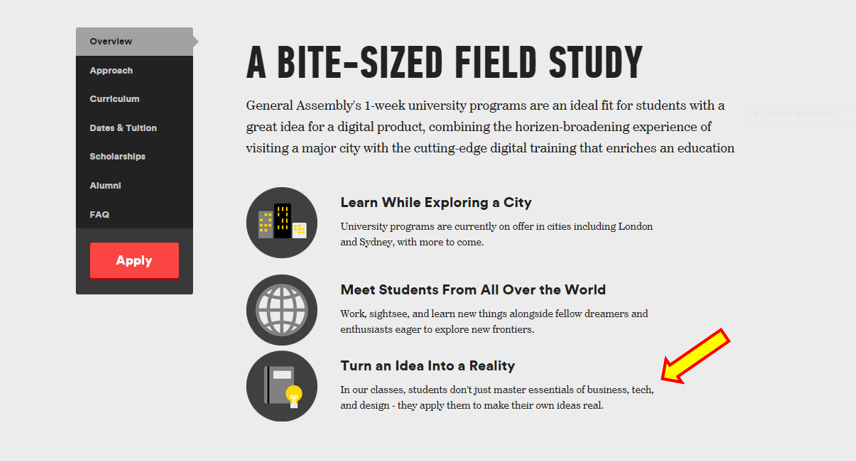
Here’s another example from DaVinci Coders, a non-profit training school launched by the DaVinci Institute in 2012 to offer students highly concentrated and career-focussed technology training – without a high price tag or lengthy college commitment.
Their programs unbundle, and in their words, “outmaneuver” conventional tech diplomas and university programs by allowing students to select very specific training modules, for example just Javascript or IOS Mobile App Development.
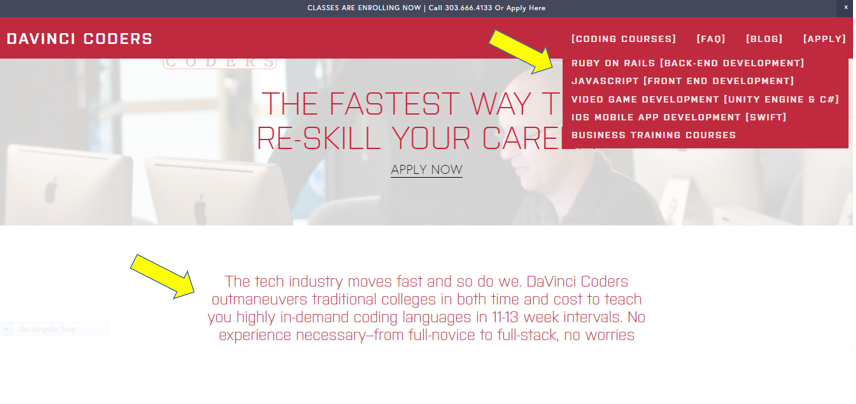
DaVinci Coders goes so far as to call itself a “Micro College,” claiming it offers the very quickest route to re-skilling for an in-demand career. Their programs last on average about 11 weeks.
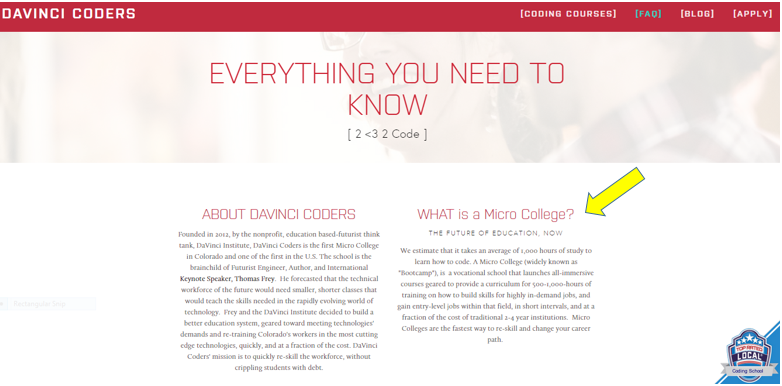
What’s key about these micro training programs and schools is their strong link to industry. Classrooms and assignments mimic real job environments and tasks to even further streamline the transition from student to working professional. Participants learn by completing the very projects they’d be asked to work on as junior level employees, and are often coached by instructors who also still working in the industry themselves.
Here’s one more example from Udacity, whose tech “nanodegrees” are longer than micro certifications, but still offer students a range of enticing benefits:
- Every program is developed with industry leaders like Google
- Flat fee per month and the option to fast-track through the program (study at your own pace)
- Half of the tuition is refunded when students finish in less than 12 months
- Students build a professional portfolio of projects to show prospective employers
- Students get quick feedback from Udacity code reviewers on every project (within 24 hours)
Here’s an example of their front-end developer nanodegree:
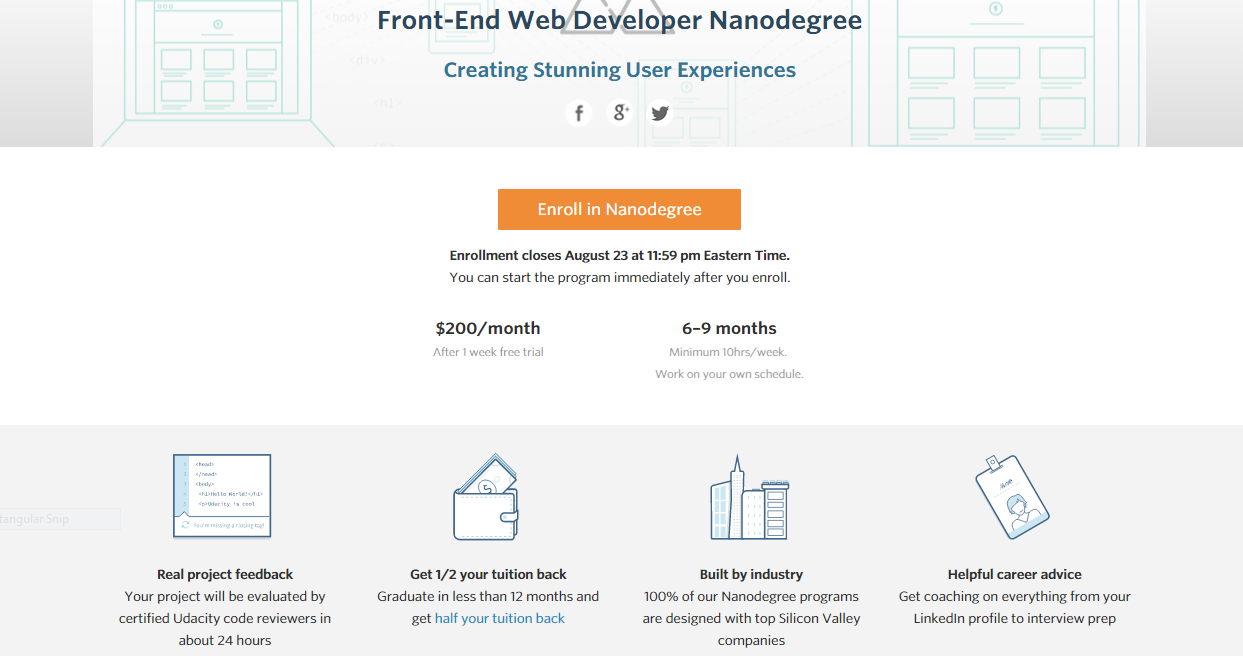
Students can mix-and-match courses and programs like these, assembling a customized repertoire of skills and knowledge that relates directly to their career path. And since technology is constantly evolving, short intensives like these are perfect for keeping up with affordable, flexible professional development.
Traditional Universities Get On Board with Unbundling
Eager to tap into the growing trend of micro-focussed learning, some universities and colleges are devising ways to credit students for completion of MOOCs and other courses from outside of their bundled program package.
Excelsior College, for example has partnered with Edevate (a micro-course assessment system) to help students convert their free or alternative online learning experiences into credits that can be applied toward an Excelsior degree. Students enrol with Edevate and are guided toward MOOCs (and other “Open Education Resources”) that fit their learning and career goals.
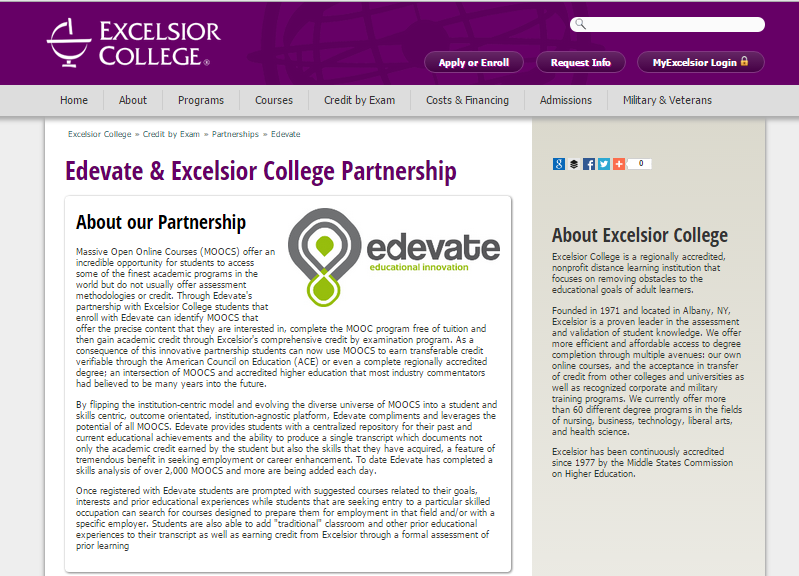
Upon completion of each course, students are assessed through Excelsior’s comprehensive “credit by examination” process. Credit is awarded based solely on the demonstration of competency – regardless of how fast or slow the students progressed through their chosen course.
Rather than every student having to complete a predetermined number of class hours, with this model, participants can leverage previous experience by fast-tracking through certain courses (and getting credit quickly) – or slow down and spend more time addressing gaps in their skills-set.
Here’s another example from the University of Wisconsin that offers students freedom from rigid course and semester formats. Students can leverage what they already know to move more quickly through certain courses. Their competency is confirmed through assessment, which they can take at any time. Thus, foundational and required degree courses can become ‘micro’ because students have the option to condense them, collect credits, and move on at their own speed.
Here’s how U of Wisconsin lays out their Flexible Option:

Imagine your career college offered Technology students the option to apply credits they earned in a bootcamp micro-course on Javascript toward your bundled diploma program? Or, perhaps you might allow students who are self-taught or have prior experience to fast-track through certain program courses by passing competency-based tests?
This kind of unbundling helps students avoid re-learning material they already know, awards credit for learning they’ve completed elsewhere, and overall facilitates a more individualized learning experience.
It’s compelling to consider how options like these could enhance student recruitment campaigns and support a school re-branding strategy.
Open Badges for Awarding, Verifying & Sharing Micro-Credentials
As students diversify how and where they source their learning, schools and employers are faced with the task of discerning for example, whether that micro-course on data analysis they took was from a reputable source and what knowledge and skills were actually acquired.
Rather than using tests to verify each and every micro-credential, some institutions have begun to recognize Open Badges as evidence of legitimate learning and accomplishment.
Open badges contain hard-coded meta data that verifies skills students learn through credible institutions. Open Badges can be added to job-search profiles, social media accounts (like LinkedIn), and academic records.
Colorado State University Online uses badges to help students unbundle their Certified Gardener Program and share credentials for various stages of learning and accomplishment. Students can earn badges for individual courses, a select combination of classes, or pursue the full Master Badge program:

Wondering how your institution can get started creating, issuing, and verifying learning badges? Credly, Mozilla Open Badges, and Fidelis are examples of platforms that help schools, individuals, and organizations of all kinds leverage and share learning credentials.
Credly has teamed up with LinkedIn so users can display digital badges on their profiles:
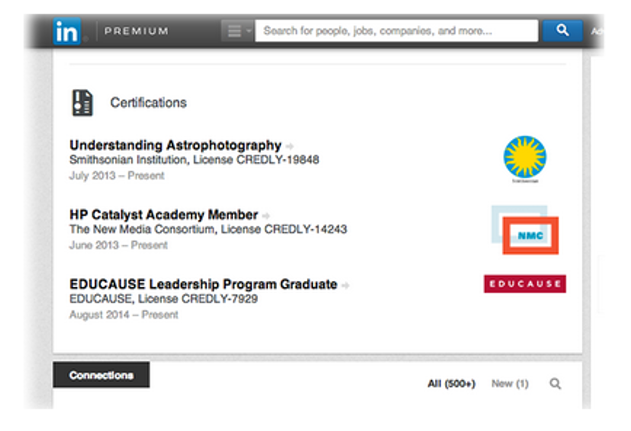
DeakinDigital, a fully owned subsidiary of Deakin University has also recently partnered with Credly to create a new badge credentialing system that will allow students to share their accomplishments online:

Fidelis actually provides schools with a Learning Relationship Management (LMA) platform that integrates badges, career mentorship, academic planning and more. As learning becomes unbundled and decentralized, students will need guidance around which courses to pursue in order to mix-and-match their way to being fully credentialed for their dream career.
Fidelis offers education institutions a way of remaining pivotal to students’ progress, even if they’re going outside of the school to earn credit or badges through MOOCs and micro courses.
Here’s step one of their online relationship-building process:
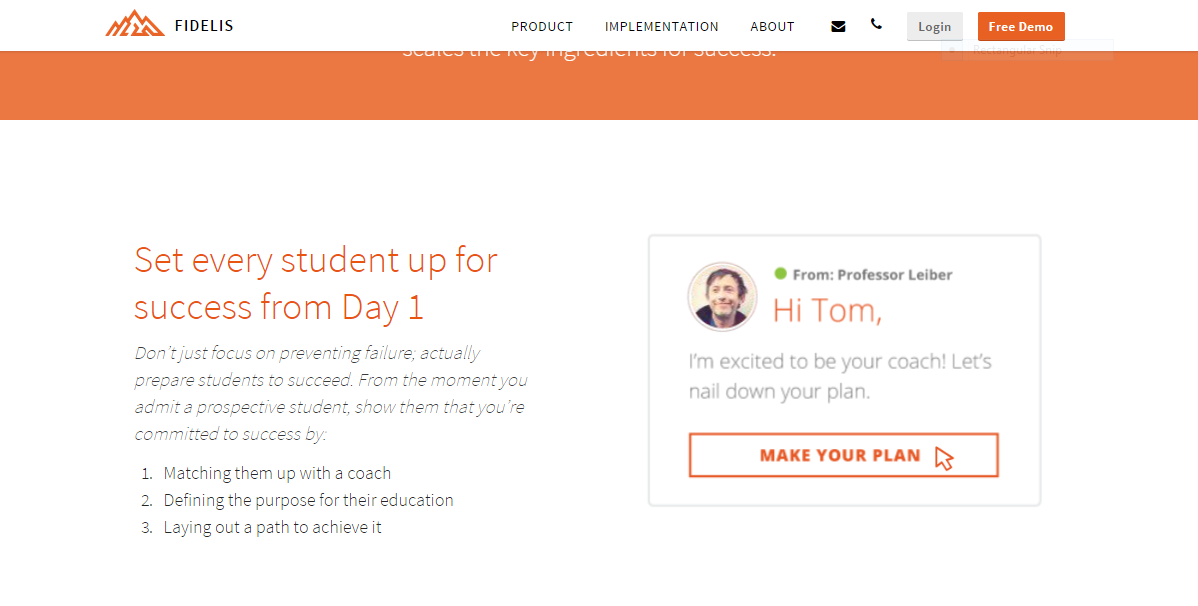
The idea is that while colleges and universities may not remain students’ one-stop providers of courses and credentials, they can still provide expert guidance, resources, and degree components that will help students create an optimal “playlist” of learning opportunities and professional experiences.
This could be a highly effective content strategy for schools who want to connect with students interested in diversified learning – but who need help navigating the sea of emerging possibilities.
In what ways do you think unbundling will most impact your institution? How do you think traditional career colleges and universities will evolve to handle “à la carte” education?






